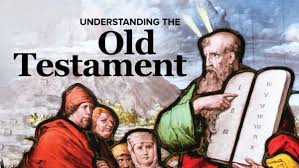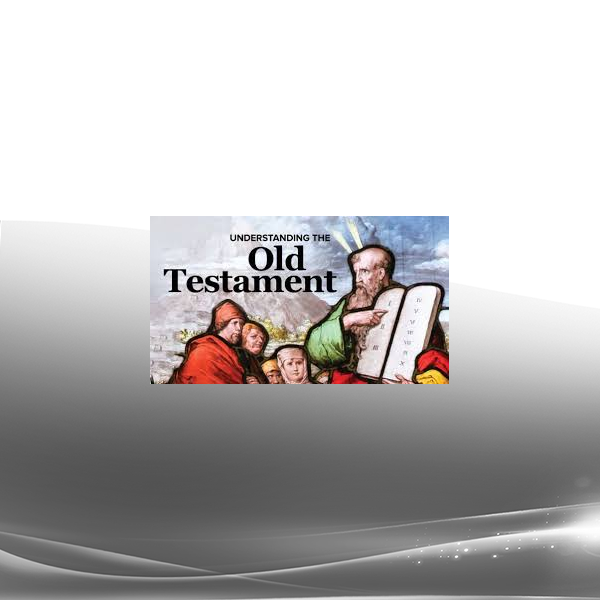
Understanding the Old Testament
“Understanding the Old Testament” is likely a comprehensive study or course aimed at providing insights into the foundational text of Judaism and Christianity. Here’s what participants might expect:
- Historical Context: Exploration of the historical, cultural, and societal context in which the Old Testament was written, including its origins, authorship, and historical accuracy.
- Literary Analysis: Examination of the various genres and literary styles found within the Old Testament, such as narrative, poetry, prophecy, and law, to understand the different ways in which the text communicates its message.
- Key Themes and Messages: Identification and analysis of the key themes, motifs, and messages that run throughout the Old Testament, including concepts such as covenant, redemption, justice, and the nature of God.
- Significant Figures and Events: Study of the major figures, events, and narratives presented in the Old Testament, such as the creation story, the Exodus, the monarchy of Israel, and the prophets, and their significance within the broader theological framework.
- Interpretation and Exegesis: Introduction to principles of biblical interpretation and exegesis, including methods for understanding the original meaning of the text in its historical and cultural context and applying its teachings to contemporary life.
- Comparative Religion: Exploration of the connections between the Old Testament and other religious traditions, such as ancient Near Eastern religions, and how these influences shaped the development of biblical thought.
- Relevance Today: Discussion on the relevance and significance of the Old Testament for contemporary believers and society, including its ethical teachings, theological insights, and enduring impact on Western culture.
- Critical Perspectives: Consideration of various critical perspectives on the Old Testament, including historical-critical, literary, and theological approaches, and how these perspectives contribute to a deeper understanding of the text.
Overall, “Understanding the Old Testament” offers participants a comprehensive and nuanced exploration of one of the most influential religious texts in human history, providing insights into its historical, literary, theological, and ethical dimensions.
What Will You Learn?
- Discover the epic story of the ancient Israelites on their journey across the Fertile Crescent.
- Study the richness and diversity of the literature, songs, poetry, and prophecy embodied within the text.
- Reflect on the notions of ethics, moral philosophy, and social justice that have guided the unfolding of Western civilization.
Even beyond its religious functions, the Old Testament has permeated Western culture since its creation, giving rise to innumerable references to the text and stories within Western literature, historical writing, philosophy, and art. For these reasons and more, the importance of the Old Testament in cultural, religious, and historical terms would be hard to overemphasize.
Now, in 24 dynamic lectures, Understanding the Old Testament takes a new look at this seminal text, filled with fresh perspectives, rich visual aids, and fascinating examination of the text, shedding light on the monumental impact of one of the world’s most beloved books.
Even beyond its religious functions, the Old Testament has permeated Western culture since its creation, giving rise to uncountable references to the text and stories within Western literature, historical writing, philosophy, and art. For these reasons and more, the importance of the Old Testament in cultural, religious, and historical terms would be hard to overemphasize. A grasp of the core writings of the Old Testament offers you valuable insight into subjects such as:
- The conceptions of divinity and theology at the heart of Judaism and Christianity;
- The epic story of the ancient Israelites on their journey across the Fertile Crescent;
- The history of the cultures of the ancient Near East;
- The richness and diversity of the literature, songs, poetry, and letters embodied within the text;
- The ways in which the writings have shaped our intellectual and artistic heritage; and
- The notions of ethics, moral philosophy, and social justice that have guided the unfolding of Western civilization.
A World-Shaping Literature
In 24 engrossing lectures, enriched with vivid color imagery and maps, Professor Miller guides you through many of the major books of the Old Testament, inviting you to probe their meaning and relevance in incisive and thought-provoking commentary. Among the books of the Old Testament that he highlights in detail, you’ll explore:
- Genesis: Uncover revealing features of the opening text of the Old Testament, such as how the events of the first week of creation form an elaborate pattern, expressing the complex order of the universe; and how the text does not lay primary blame for “the fall” on the woman, Eve;
- Deuteronomistic History: Across the books of Judges, Samuel, and Kings, study the dramatic history of the people of Israel in the Promised Land, bound to God by a covenant; follow the story of the Israelites’ disobedience to God, and its tragic consequences;
- The Prophets: Through the dramatic narratives of Elijah, Amos, Jeremiah, and Isaiah, take account of the challenges faced by those who sought to actualize God’s plan for humanity;
- The Books of Ruth and Esther: Among notable women in the Old Testament, explore two stories of women in the ancient Near East who are doubly at risk, and who prevail through loyalty, resourcefulness, and integrity;
- Daniel and the Apocalyptic: In the Book of Daniel, encounter the genre of apocalyptic literature—revelation initiated by God—and contemplate the figure of “the Son of Man,” a promised redeemer.
Probe Deeply into the Inner Meanings of the Text
Throughout these extraordinary lectures, Professor Miller offers a wealth of intriguing perspectives on how to approach the text of the Old Testament. In numerous cases, you’ll assess the role of translation in the understanding of the texts, studying the meanings of key Hebrew words and words of ancient languages. You’ll also look in depth at the history, dating, and writing of the texts themselves. In addition, you’ll study the literary and linguistic features of many of the texts, noting how they achieve their impact on the reader.
In Understanding the Old Testament, you’ll take a revelatory look at this epically impactful document, learning to find its deeper historical and religious meanings, as well as to savor its sublime literary treasures.







Reviews
There are no reviews yet.